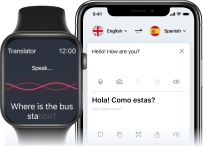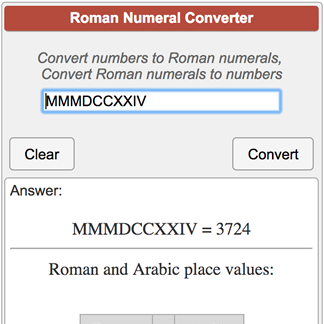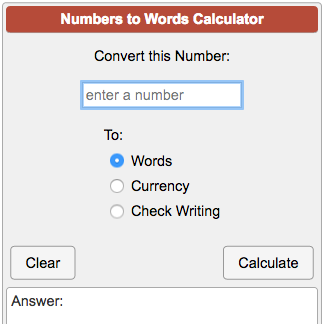Topic translate xhosa to english: Discover the art of translating Xhosa to English with our comprehensive guide, designed to simplify and enhance your language learning journey.
Table of Content
- How can I translate Xhosa to English using an online tool?
- Top Online Xhosa to English Translation Services
- Understanding Xhosa Pronunciation and Grammar
- Common Xhosa Phrases and Their English Translations
- Technological Tools for Xhosa to English Translation
- Professional Xhosa to English Translation Services
- Challenges and Tips for Effective Translation
- YOUTUBE: Xhosa to English Basic Words Translation
- Cultural Context in Xhosa to English Translation
- How to Improve Your Xhosa to English Translations
- Resources for Learning Xhosa and English
How can I translate Xhosa to English using an online tool?
There are several online tools available that can help you translate Xhosa to English. Here is a step-by-step guide on using an online tool for translation:
- Open your preferred web browser.
- Type \"https://translate.com/xhosa-english\" in the address bar and hit Enter.
- Once the webpage loads, you will see a text box labeled \"Enter text\" or similar.
- Click inside the text box and start typing or paste the Xhosa text you want to translate.
- As you type or paste the text, the translation tool will automatically detect the language and translate it to English.
- If you want to modify the translation settings or specify any preferences, look for the \"Advanced Translation Options\" or similar button/section on the website.
- You can also use additional features such as pronunciation, dictionary, or example sentences, depending on the specific translation tool you are using.
- Once you are satisfied with the translation, you can copy the translated English text and use it as needed.
- Repeat the process for any other Xhosa texts you want to translate.
Note that the accuracy of the translation may vary depending on the complexity of the text and the specific translation tool you are using. It is always a good idea to double-check important translations with a native speaker or a trusted source.
READ MORE:
Top Online Xhosa to English Translation Services
Finding a reliable online translation service for Xhosa to English can be challenging. Here, we\"ve compiled a list of top platforms known for accuracy and ease of use:
- Google Translate: Offers instant translations for simple sentences and words.
- Microsoft Translator: Provides translations with options for context and pronunciation guides.
- Bing Translator: Known for its user-friendly interface and effective translation capabilities for web pages.
- Yandex Translate: Offers comprehensive translations with support for multiple languages, including Xhosa.
- iTranslate: A mobile app that provides translations on-the-go with voice translation features.
Each service has its unique strengths, from handling common phrases to providing context for more accurate translations. When choosing a translation service, consider the complexity of your text and the level of accuracy required for your needs.
Understanding Xhosa Pronunciation and Grammar
Xhosa is a beautiful language with unique sounds and grammatical structures. Mastering its pronunciation and grammar is key to effective communication. Here\"s a primer to get you started:
- Click Sounds: Xhosa is famous for its click consonants, which are integral to the language. There are three main types: dental, lateral, and alveolar clicks, similar to the sounds of tsk, tch, and k respectively.
- Vowel Sounds: Xhosa has five vowel sounds, which are more or less consistent, making them easier to learn than in many other languages.
- Noun Classes: Xhosa grammar uses noun classes that affect how nouns are treated in sentences, influencing verbs, adjectives, and pronouns for agreement.
- Verb Conjugation: Verbs in Xhosa are modified by adding prefixes and suffixes to indicate tense, mood, and aspect. Understanding these changes is crucial for constructing meaningful sentences.
- Tone: Xhosa is a tonal language, where the meaning of a word can change based on the pitch at which it is spoken. There are high, low, and rising tones to pay attention to.
Grasping these fundamentals can significantly enhance your ability to translate and understand Xhosa. Practice regularly, and don\"t hesitate to seek help from native speakers or language learning platforms.

Common Xhosa Phrases and Their English Translations
Learning common Xhosa phrases is the first step towards bridging the communication gap. Here are some essential phrases and their English translations:
- Molo (Hello): A universal greeting used when meeting someone.
- Unjani? (How are you?): A polite way to start a conversation.
- Ndiyaphila, enkosi. (I\"m fine, thank you.): A positive response to \"Unjani?\".
- Uxolo (Sorry): Useful for apologizing or attracting someone\"s attention.
- Ndiyabulela (Thank you): An expression of gratitude.
- Nceda (Please): A courteous addition to requests or questions.
- Ewe / Hayi (Yes / No): Basic affirmative or negative responses.
- Ungandibonisa...? (Can you show me...?): Helpful when asking for directions or assistance.
- Ubusuku obuhle (Good night): A farewell used in the evening or before going to bed.
- Ndiza kubuya (I will come back): When you intend to return or come back later.
These phrases are a great starting point for anyone looking to communicate in Xhosa or translate simple sentences into English. Practice them regularly to build your confidence and fluency.
Technological Tools for Xhosa to English Translation
In the digital age, numerous technological tools have emerged to assist with Xhosa to English translations. These tools range from simple apps to sophisticated software, making language learning and translation more accessible than ever:
- Google Translate: A widely used tool that offers quick translations for text and websites. It supports voice input for Xhosa, making it convenient for conversational translations.
- Microsoft Translator: Known for its real-time translation features, this tool facilitates easy translation of texts, speech, and even images.
- Bing Microsoft Translator: Offers reliable translation services, including web page translations, making it easier to understand content in Xhosa.
- iTranslate: A versatile app that provides translation and dictionary features. It\"s great for learning new words and phrases in Xhosa.
- Language Learning Apps: Platforms like Duolingo, Babbel, and Rosetta Stone have begun to include Xhosa in their language offerings, providing structured lessons for language learners.
These tools are instrumental in breaking down language barriers, offering both learners and professionals the ability to understand and communicate in Xhosa with greater ease. However, for complex translations, professional human translators are recommended for the highest accuracy.
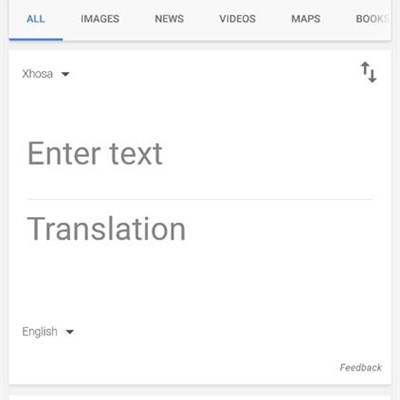
_HOOK_
Professional Xhosa to English Translation Services
When accuracy and nuance are paramount, professional Xhosa to English translation services are indispensable. These services ensure that your translations are not only accurate but also culturally and contextually relevant. Here are key aspects to consider:
- Specialized Translation Agencies: Many agencies offer services specifically for Xhosa to English translations, employing native speakers and language experts to ensure high-quality results.
- Freelance Professional Translators: Platforms like Upwork and ProZ connect you with freelance translators who specialize in Xhosa to English translations, offering a more personalized service.
- Certified Translations: For legal documents, academic records, or immigration papers, certified translations are often required. Professional services ensure these translations are accepted by governmental and educational institutions.
- Technical and Medical Translations: Specialized knowledge in fields like medicine, law, or engineering requires translators with relevant expertise, ensuring that translations are accurate and appropriate for the context.
- Cultural Consultation: Some professional services also offer cultural consultation to ensure that your translations are appropriate for the target audience, avoiding potential cultural misunderstandings.
Choosing the right professional service depends on your specific needs, including the complexity of the text, the required turnaround time, and the level of expertise needed. Investing in professional translation can significantly impact the effectiveness of your communication.
Challenges and Tips for Effective Translation
Translating between Xhosa and English presents unique challenges due to their distinct linguistic structures and cultural nuances. Here are some common hurdles and strategies for overcoming them:
- Complex Click Sounds: Xhosa\"s click consonants have no direct equivalents in English. Listening to native speakers and practicing regularly can help overcome this challenge.
- Cultural Nuances: Certain concepts or phrases in Xhosa may not have direct translations in English. Understanding the cultural context behind the words is crucial for accurate translation.
- Grammar and Syntax Differences: The grammatical structure of Xhosa is significantly different from English. Familiarizing yourself with Xhosa grammar can aid in producing more natural translations.
- Tonal Variations: Xhosa\"s tonality can alter the meaning of words, a feature absent in English. Paying attention to tone is essential for accurate verbal translations.
- Idiomatic Expressions: Idioms and proverbs may not translate directly. Researching or consulting with native speakers can provide insights into the intended meanings.
Tips for Effective Translation:
- Use Multiple Resources: Don\"t rely on a single translation tool or service. Cross-reference multiple sources for more accurate translations.
- Practice Regularly: Regular practice with native speakers or through language exchange programs can improve your translation skills.
- Keep Learning: Continuous learning about both languages and cultures is essential for enhancing your translation capabilities.
- Seek Feedback: Getting feedback from native speakers or professional translators can help refine your translations.
- Stay Patient and Persistent: Mastery of translation between these languages requires time and patience. Embrace the learning process and stay persistent.
By addressing these challenges head-on and employing effective strategies, translators can enhance their skills and produce more accurate and culturally relevant translations.
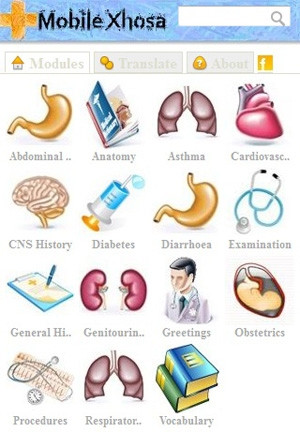
Xhosa to English Basic Words Translation
Experience the rich and fascinating culture of Xhosa-speaking communities in this captivating video. Immerse yourself in the vibrant traditions, beautiful language, and stunning landscapes that make Xhosa culture so enchanting.
English to Xhosa Translator App and Xhosa to English Translator App
Discover the world of language translation like never before in this video. Learn about the incredible skills and expertise of professional translators as they bridge communication gaps, connect cultures, and bring stories to life through their powerful words.
Cultural Context in Xhosa to English Translation
Understanding the cultural context is essential for accurate and meaningful translations between Xhosa and English. Cultural nuances significantly influence how phrases are interpreted and translated. Here’s what to consider:
- Proverbs and Idioms: Xhosa is rich in proverbs and idioms that may not have direct equivalents in English. Understanding their underlying meanings requires cultural insight.
- Social Hierarchies and Respect: Xhosa language often reflects social hierarchies and levels of respect, which can be challenging to convey in English without additional context.
- Cultural References: References to flora, fauna, and local practices in Xhosa may be unfamiliar to English speakers. Providing explanations or choosing equivalent analogies can be helpful.
- Historical Context: Some phrases and terms may carry historical significance. Recognizing these aspects can prevent misinterpretation and ensure respectful translation.
- Rituals and Traditions: References to rituals and traditions may require detailed explanations to convey their significance and relevance in English.
Tips for Incorporating Cultural Context:
- Research: Invest time in researching the cultural background of the text to understand the context fully.
- Consult: When possible, consult with cultural experts or native speakers to gain deeper insights.
- Contextualize: Provide additional explanations or footnotes where necessary to clarify cultural references for the English-speaking audience.
- Avoid Assumptions: Do not assume cultural knowledge. Clearly explain concepts that might be unfamiliar to the target audience.
- Respect and Sensitivity: Always approach translation with respect for the source culture, aiming to preserve its integrity and richness.
Including cultural context in translations enriches the audience\"s understanding and appreciation of the source material, bridging the gap between languages and cultures.
How to Improve Your Xhosa to English Translations
Enhancing your skills in translating between Xhosa and English can be rewarding, opening up new opportunities for communication and understanding. Here are practical steps to improve your translation abilities:
- Deepen Your Language Knowledge: Strengthen your grasp of both Xhosa and English by expanding your vocabulary and understanding of grammatical structures.
- Practice Regularly: Consistent practice is key. Try translating articles, songs, or short stories to refine your skills.
- Use Technology Wisely: Leverage translation apps and online resources to compare your translations and learn from differences.
- Engage with Native Speakers: Interaction with native Xhosa speakers can provide insights into colloquial expressions and cultural nuances.
- Seek Feedback: Getting constructive feedback from experienced translators or language teachers can help identify areas for improvement.
- Study Cultural Contexts: Understanding the cultural backgrounds of both languages enhances the quality of your translations, making them more nuanced and accurate.
- Join Translation Communities: Online forums and social media groups for translators can be valuable resources for advice, tips, and practice opportunities.
- Attend Workshops and Courses: Participating in workshops or courses focused on translation skills can provide structured learning and professional guidance.
- Read Widely: Reading books, newspapers, and websites in both Xhosa and English can improve your language proficiency and translation skills.
- Stay Patient and Persistent: Mastery takes time. Stay committed to your learning journey and celebrate your progress.
By following these steps, you can significantly enhance your Xhosa to English translation skills, making your translations more effective and accurate.

READ MORE:
Resources for Learning Xhosa and English
Embarking on the journey to learn Xhosa or improve your English opens a world of cultural and communication opportunities. Here are valuable resources to assist in your language learning journey:
- Online Language Courses: Platforms like Duolingo, Babbel, and Rosetta Stone offer courses in both Xhosa and English, catering to various proficiency levels.
- Language Learning Apps: Apps such as Memrise and Anki utilize spaced repetition systems to help memorize vocabulary effectively.
- Textbooks and Grammar Guides: Look for textbooks specifically designed for Xhosa learners, as well as comprehensive English grammar guides for structure and usage.
- Language Exchange Platforms: Websites like Tandem and HelloTalk connect learners with native speakers for practice and exchange.
- Online Tutors: Platforms such as iTalki offer personalized learning experiences with native tutors for both Xhosa and English.
- Language Meetups: Join local or online meetups to practice speaking with others in a relaxed, social setting.
- Educational Podcasts and Videos: YouTube channels and podcasts focused on language learning can provide insights and tips for both Xhosa and English learners.
- Children’s Books and Simple Literature: Reading materials designed for children or beginners in both languages can enhance reading skills and vocabulary.
- Translation Exercises: Practice translating simple texts from Xhosa to English and vice versa to apply learning in a practical context.
- Cultural Immersion: Engage with movies, music, and media in your target language to enhance understanding and cultural appreciation.
Combining these resources with dedication and regular practice will greatly enhance your language learning journey, making the process enjoyable and rewarding.
Embarking on the journey of translating Xhosa to English opens doors to a rich cultural exchange and deeper understanding. Embrace the challenge, and let your language skills bridge worlds.
_HOOK_






